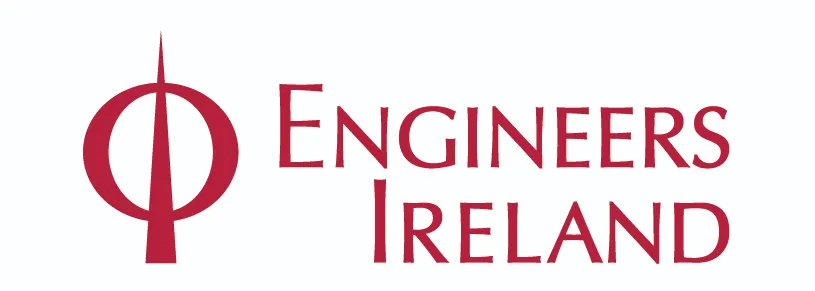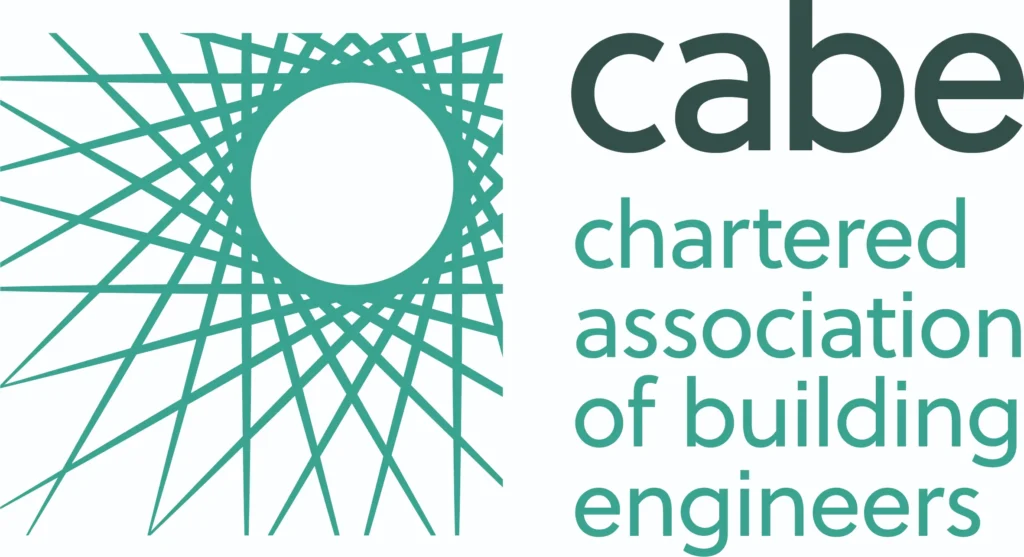View all Courses
Building Engineering (Common Entry)
Bachelor of Engineering
Course Details
| CAO Code | AU243 |
|---|---|
| Level | 7 |
| Duration | 3 Years |
| CAO Points | 264 (2024) |
| Method of Delivery | On-campus |
| Campus Locations | Donegal – Letterkenny |
| Mode of Delivery | Full Time |
| Work placement | Yes |
Course Overview
This is a common entry BEng in Building Engineering with an option of two different streams of specialisation
BEng in Building Engineering with Renewable Energy
BEng in Fire Safety Engineering
At the end of Stage 1, learners choose either the Building Engineering with Renewable Energy or Fire Safety Engineering pathway, having had the opportunity to decide which best suits their interests, skills and ability.
A building’s services are the systems installed in a building that makes it comfortable, functional, efficient and safe to use. Building Services & Renewable Energy Engineers ensure that building energy services meet international environmental performance standards. This is done with the help of computer simulation tools to predict the likely performance of buildings during the design stages.
The Building Services Engineering profession spans the whole spectrum of construction, including the design and installation of engineering systems such as renewable energy, heating and power distribution, project management, facilities management and maintenance. In any new construction project, Building Services and Renewable Energy systems typically account for 30-40% of the total cost, and buildings account for almost 50% of carbon emissions. Building Services and Renewable Energy Engineering is at the forefront of the challenges facing society.
Course Details
Year 1
| Semester | Module Details | Credits | Mandatory / Elective |
|---|---|---|---|
| 1 |
Fire Technology 1This module introduces learners to the area of fire safety with particular emphasis on major disasters and how these have shaped fire safety legislation. This module will develop the learner's capacity to identify fire issues within the construction/property sector and develop the learner with practical knowledge of the tools and techniques of research. Students will be introduced to fire legislation and its statutory requirements as detailed in the Building Regulations. Learning Outcomes 1. Describe circumstances around major fire disasters that have driven fire safety legislation. |
05 | Mandatory |
| 1 |
Construction Technology 1This module will mainly focus on the construction technology for domestic structural elements and simple framed construction with consideration to sustainable construction detailing . The significance of construction technology as an interdisciplinary medium in the context of the construction industry will be outlined . Learners will be encouraged to analyse and distinguish between the various structural elements including substructure, external and internal walls, upper floors, stairs, roof structure and the building frame. Learners will record building details by hand sketching and manual drafting. Learning Outcomes 1. Classify soil types and explain bearing capacities , live loading , dead loading and identify the function and illustrate various structural building element details for substructure . |
05 | Mandatory |
| 1 |
Elementary CADAn introductory module on the use of computer aided draughting and modelling software for construction projects. Learning Outcomes 1. Demonstrate knowledge and application of industry standard 2D drawing and 3D modelling software. |
05 | Mandatory |
| 1 |
Mathematics 1This is an introductory Mathematics module addressing key skills such as calculations and algebraic manipulation. The syllabus takes cognisance of the Project Maths approach at secondary school where applied problems in trigonometry, areas and volumes, and descriptive statistics will be examined. Development of appropriate mensuration. Learning Outcomes 1. Perform calculations effectively using both approximations and scientific notation. |
05 | Mandatory |
| 1 |
Physics 1This module will give the student an under standing of the fundamental principles of physics. The module will enable the student to solve practical problems based on the concepts studied. It will also help familiarise the student with practical measurement and experimentation techniques used in the physics laboratory. Learning Outcomes 1. Recognise the need for a system of units and the importance of accuracy in calculations and measurements. |
05 | Mandatory |
| 1 |
Technical Writing & CommunicationThis module will develop the learner’s knowledge and appreciation of communication skills in relation to effective writing, presentations, time management , computer applications and the general communication processes. The module will, where practicable, link with core modules in the application and consolidation of technical writing and other forms of general communication . Learning Outcomes 1. Apply effective writing skill s in the drafting and writing of reports and other documents . |
05 | Mandatory |
| 2 |
Building Services 1This introductory module introduces students to the science and technology of Mechanical Building Services design. Through a range of practical problem analysis, numerical solutions are developed to assist in the design of energy efficient mechanical services suitable for a domestic house. Learning Outcomes 1. Calculate the heat loss from a domestic house |
05 | Mandatory |
| 2 |
Fire Technology 2This module focuses on fire safe detailing of building components. In addition, it will seek to expand the learners knowledge of the fire safety regulations as described in Technical Guidance Document B and other relevant codes of practice. Learners will also further develop good drawing practice and CAD skills within the module. Learning Outcomes 1. Illustrate the relevance of the Technical Guidance Document B in relation to residential dwellings. |
05 | Mandatory |
| 2 |
Construction Technology 2Following on from Construction Technology 1 this module will mainly focus on the technology of building components (windows, doors and screens) and floor, wall, ceiling and roof finishes. Learners will further develop good drawing practice and freehand sketching and be encouraged to analyse and distinguish between the fitout element of the construction. Learning Outcomes 1. Review new technologies that are being incorporated within structural elements. |
05 | Mandatory |
| 2 |
Mathematics 2This module builds further on Mathematics 1 and introduces important mathematical topics such as curve fitting, complex numbers, vectors and differential and integral calculus. Learning Outcomes 1. Graph sinusoidal waveforms |
05 | Mandatory |
| 2 |
Physics 2This module will give the student an understanding of the fundamental principles of dynamic systems, the properties of matter and wave motion. It will also enable the student to solve practical problems based on the concepts studied. The module will also help familiarise the student with practical measurement and experimentation techniques used in the physics laboratory. Learning Outcomes 1. Describe the underlying physical principles applicable to mobile bodies. |
05 | Mandatory |
| 2 |
Land Surveying & GISThis module introduces students to the basic principles of land surveying. Skills required to undertake linear and levelling measurements to produce scale drawings as well as area and volume calculation techniques are developed. The module includes an introduction to total station surveying along with an introduction to Geospatial Information Systems (GIS). Learning Outcomes 1. Apply units of measurement and scale, measure and produce scale survey drawings of buildings and ground features |
05 | Elective |
| 2 |
Electrical Services 1Introduction to Alternating Current and Direct Current electrical supplies in buildings and introductory electrical circuit design for buildings based on the current Electrical Installation guide. Introductory cable sizing. Learning Outcomes 1. Calculate Voltage drops and power losses in circuits using appropriate formul a e . |
05 | Elective |
Progression
On successful completion of this programme, students can continue to Level 8 study in their chosen stream.
Other options include
Bachelor of Science (Hons) in Construction Contracts Management (Online)
Level 8 Degrees in Building / Architectural Engineering or Energy Engineering in institutes and universities at home and abroad.
Download a prospectus
Entry Requirements
Leaving Certificate Entry Requirement | 5 subjects at O6/H7 |
QQI/FET Major Award Required | Any |
Additional QQI/FET/ Requirements | C20139 or 5N1833 or C20174 or C20175 or 5N0556 or 5N18396 or Leaving Certificate Maths at 06/H7 |
Testimonial
My experience of ATU was one where the smaller class sizes lead to a friendly cooperative culture between students and staff. The staff made themselves as available as possible and were extremely helpful, while at the same time pushed me to understand my subject in full detail. I feel this not only assisted in gaining my qualification but enhanced my understanding of Building Services beyond the course curriculum which gave me a competitive advantage in the job market. Anyone who decides to study in the Department of Civil Engineering and Construction can expect a similar experience.
Michael O’Malley , Building Services Engineer, Kingmech (Design & Build Services), Ramelton, Co. Donegal
Fees
Total Fees EU: €3000
This annual student contribution charge is subject to change by Government. Additional tuition fees may apply. Click on the link below for more information on fees, grants and scholarships.
Total Fees Non-EU: €12000
Subject to approval by ATU Governing Body (February 2025)
Further information on feesProfessional Accreditation
It is expected that the BEng in Building Engineering and Renewable Energy and BEng in Fire Safety Engineering will meet the Engineers Ireland education standard for the registration of Associate Engineer (Sydney Accord).
ATU Donegal is an Academic Partner of Chartered Association of Building Engineers (CABE).


Careers
Career Pathways
The main employers are:
Architectural Practice
Building Services Engineering
Fire Safety Engineering Consultants
Fire Services and Building Control
Public Sector
Renewable Energy Industry
Retrofitting Sector
Graduate Careers
Graduate careers typically include:
Building Engineer
Fire Safety Engineer
Further Information
Contact Information
Department of Civil Engineering & Construction
Anne Boner
Head of Department
T: +353 (0)74 9186403
Civil Engineering and Construction


